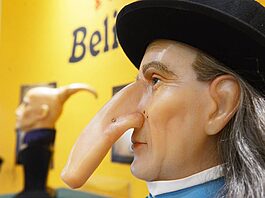
The dark legacy of March 3rd: Remembering Malawi’s MCP oppressive regime

By Twink Jones Gadama
BLANTYRE-(MaraviPost)-On the 3rd of March, every year in Malawi, a somber atmosphere descends upon the nation as people remember the oppressive restrictions imposed by the Malawi Congress Party (MCP) government.
This date serves as a haunting reminder of the dark era in Malawi’s history when citizens lived in fear of arbitrary rules and punishments enforced by the ruling regime.
One of the most notorious restrictions imposed by the MCP government was the prohibition of listening to praise songs.
These songs, often used to express admiration and support for political figures, were seen as a threat to the party’s authority.
Anyone caught listening to such songs would face brutal consequences – beatings forced feeding, and imprisonment. The message was clear: dissent would not be tolerated.
Similarly, the MCP government cracked down on alcohol consumption, deeming it a corrupting influence on society. Those found drinking alcohol faced the same harsh retribution as those caught listening to praise songs.
The government sought to control every aspect of people’s lives, eliminating any form of leisure or enjoyment that did not align with their ideology.
Even something as basic as working in the fields was prohibited under the MCP regime. Agricultural activities were tightly regulated, with strict rules and regulations in place.
This restriction not only hindered the economic livelihoods of farmers but also reinforced the government’s control over the population.
Furthermore, the MCP government labeled anyone who opposed them as enemies of the state. This designation placed a target on the backs of dissenters, making them vulnerable to retaliation and persecution.
Spies were deployed to monitor people’s activities, instilling a sense of paranoia and fear among the populace.
The restrictions imposed by the MCP government went beyond controlling people’s actions – they also sought to regulate their behavior in private spaces.
Speaking loudly to one’s spouse was forbidden, with severe consequences for those who disobeyed. Even the act of eating meat was prohibited, a cruel and unnecessary intrusion into people’s personal lives.
The oppressive nature of the MCP government was further evidenced by its ban on playing football. This popular sport, usually enjoyed by people of all ages, was deemed a threat to the regime’s authority.
By prohibiting such innocent activities, the government displayed its willingness to suppress any form of expression or unity among the people.
As we reflect on the restrictions imposed by the MCP government on the 3rd of March, it serves as a stark reminder of the dangers of unchecked power and authoritarian rule.
The legacy of this dark era in Malawi’s history continues to reverberate through the generations, reminding us to remain vigilant and steadfast in safeguarding our freedoms and rights.






